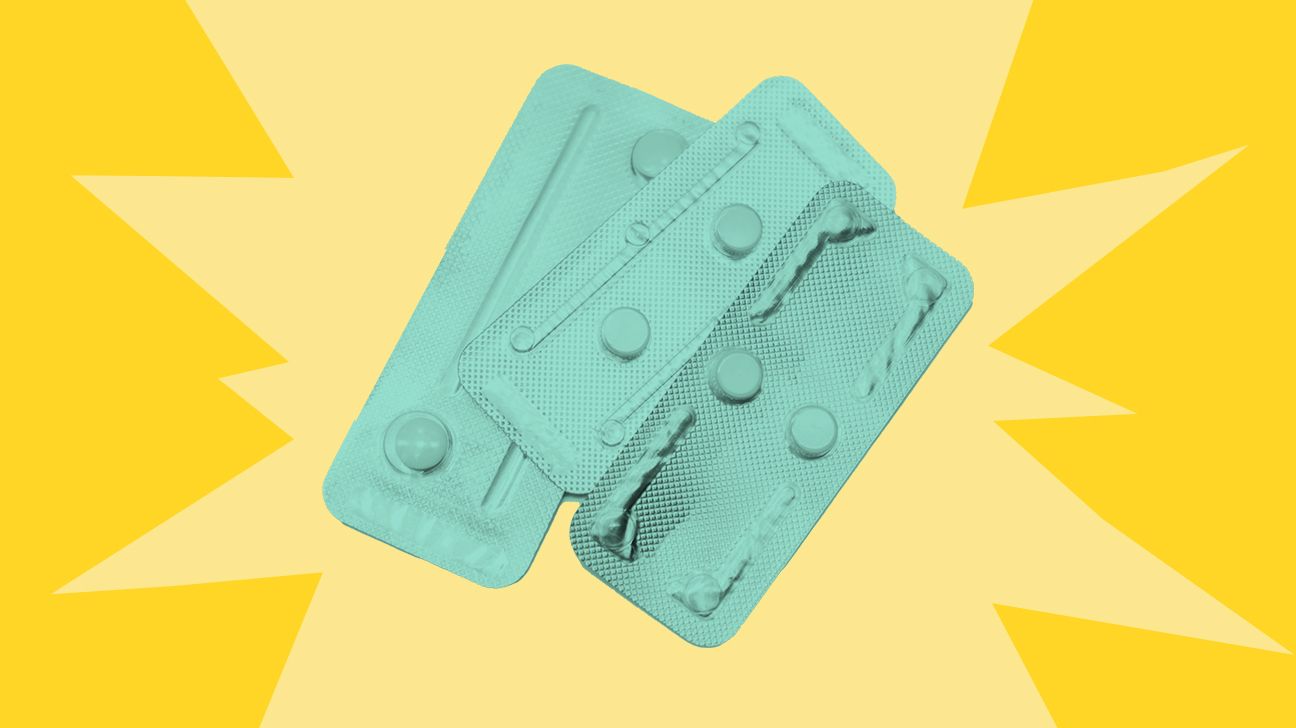Morning-after pills like Plan B can be a godsend in one-off situations when your birth control method fails, or you forget to use one entirely. But what if you have to take it more than once? Will it still work — and will you have to deal with weird side effects?
According to the FDA, Plan B, aka levonorgestrel or the morning-after pill, is an over-the-counter emergency contraceptive meant to prevent pregnancy after sex without a barrier method. When taken within 3 days, it can reduce your chances of getting pregnant by as much as 89 percent.
The key is to take it quickly — like, ASAP, after you realize you need it. Here’s how it works, whether doubling up on a dose is helpful, and whether it’s OK to take it more than once a day, week, or month.

Levonorgestrel is a hormone that can help you avoid pregnancy after you’ve had sex without a barrier method. When you take Plan B, you get a dose of levonorgestrel that’s higher than what’s found in your standard birth control pill.
Levonorgestrel keeps your ovaries from releasing an egg so that it won’t get fertilized by sperm in your reproductive tract. It might also help stop an egg from becoming fertilized by a sperm, or stop a fertilized egg from implanting onto your uterus.
It won’t do anything for a fertilized egg that’s already implanted onto your uterus, though. For that, the only pill option is the abortion pill mifepristone.
A single pack of Plan B delivers the full dose of levonorgestrel. You don’t have to take any additional pill packs. Taking more in a single day won’t lower your chances of getting pregnant, but it might up your chances of side effects like queasiness.
What if you have sex without a barrier method a second time shortly after, and need to retake the morning-after pill? Physically, it’s fine to take Plan B more than once — like twice in a few weeks or twice in a month. But that doesn’t mean it’s a good idea.
Plan B is an emergency form of contraception, which is not what you want to use regularly. It’s not as effective as standard birth control. So, relying on it could make you more likely to get pregnant than, say, using condoms or taking a daily birth control pill.
Other reasons why taking Plan B on the reg isn’t a good idea? It’s mega expensive. A single two-pill dose can run you as much as $50. The hormones can also make your periods irregular, making it harder to track when you have a higher chance of getting pregnant.
Most importantly, If you find yourself relying on Plan B often, this could be a sign that your standard birth control isn’t the best fit. In that case, consider talking to your doc about finding another option that’s a better fit for you.
People call it the morning-after pill for a reason: Plan B works best when you take it as soon as possible after having sex without a barrier method.
If you take those pills within 3 days, you’ll have a 75 to 89 percent chance of not getting pregnant. And while you can technically wait as long as 5 days, the quicker you move, the better.
A single dose of Plan B consists of two pills that you take within a day. Take the first pill ASAP and the second one 12 hours later. And then… that’s it. You’re done!
The only exception? If you happen to puke within 2 hours of taking one pill (Plan B can cause nausea), you’ll want to call your doc. They might recommend that you take another dose.
First, the good news. Plan B is very safe and doesn’t have any major risks associated with it. The downside? You might not feel awesome after taking it. Around 1 in 4 women feel nauseous after taking the morning-after pill, though thankfully, the queasiness only sticks around for a few days.
Other than that, you might feel tired, dizzy, have a headache, abdominal cramping, or breast tenderness.
Your period might also be a little funky. It could come up to a week later than usual and be heavier than normal. You might also have some spotting before it shows up. These symptoms are pretty normal and nothing to worry about.
But if you have any bleeding from your period, spotting that lasts longer than a week, or have serious abdominal cramps in the weeks after taking the morning-after pill, you should call your doc. These could be signs of an ectopic pregnancy, which needs to be dealt with ASAP.
Plan B is your best chance to avoid pregnancy in an emergency when your regular birth control fails or you forget to take it.
But again, it’s not what you want to rely on often because it’s not as effective for preventing pregnancy as regular birth control. Plus, it doesn’t protect you from STIs.
So, if you feel like you’re using it more than once in a blue moon, you might need to rethink your standard contraceptive plan.
If you have trouble remembering to take your birth control pill, for instance, you might be better off with an IUD or implantable birth control. Your doctor can help you weigh your current method and figure out an option that works better for you.
tl;dr
You only need to take one pack of Plan B — that’s two pills spaced 12 hours apart — to reduce your risk of getting pregnant after sex without a barrier method.
And it’s OK to take Plan B more than once, like twice a month, though it might mess with your period a little bit.
But needing Plan B frequently could be a sign that your regular birth control isn’t a good fit. In that case, it’s worth finding an option that works better for you.

